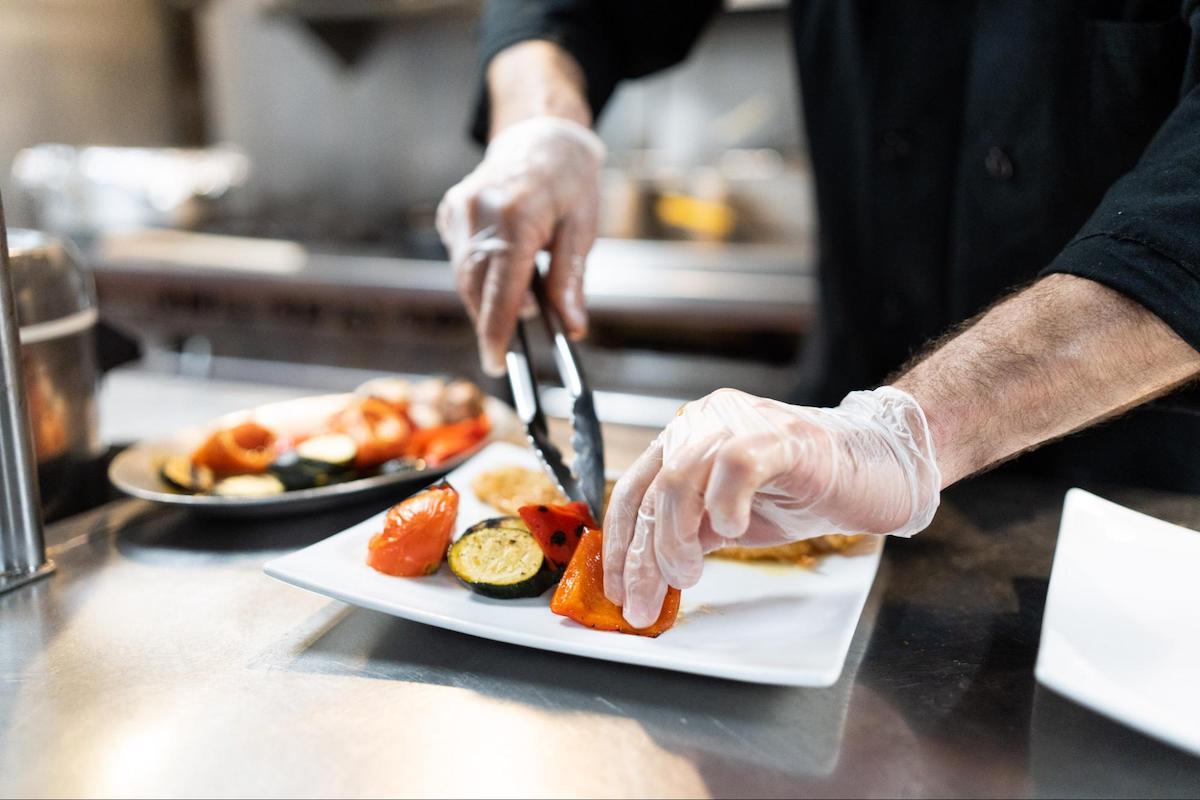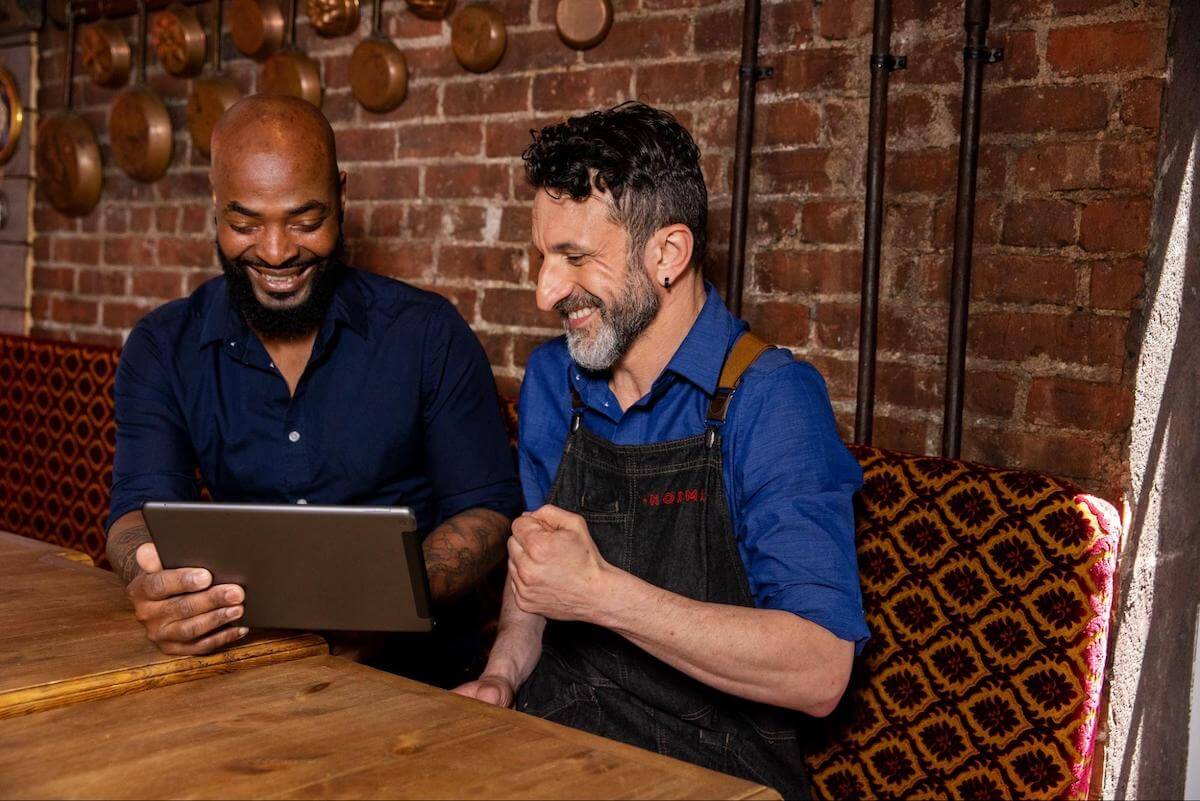5 types of restaurant partnerships to start building
Skip the article and turn takeaways into action by scheduling a call with our team.
The restaurant business is definitely a team sport. From restaurateurs to line cooks, servers, bussers, and everything in between, the many players on a team have to be aligned and have each other’s backs. There’s a reason the camaraderie in the food service industry is legendary.
But that’s within an organization. What about teamwork that happens outside the business, like with restaurant partnerships?
There are tons of different partnerships a restaurant can undertake. A lot depends on circumstances—for example, what your local community looks like, what other local businesses look like, and what your business goals are. A small local restaurant has different needs and wants than a franchise. Partnerships reflect the restaurant owner.
So, what kind of restaurant partnerships can be valuable? What can they look like, and how can they make for win-win scenarios? Let’s take a look.
5 restaurant partnerships to build community and increase visibility

Whether you’re running a new restaurant or an established one, building community ties is an excellent way to get your name out there. Here are five places to make connections.
1. Local breweries and distilleries
You’ve probably noticed there’s been an explosion in craft beer and liquor over the last couple of decades. That’s great news for restaurants. Once you get your liquor license, you can offer local craft beverages to entice customers to try something new and delicious. Since serving things that taste good is an iron law in the restaurant industry, making these local partnerships should be a simple choice.
But choosing which ones specifically may be more difficult. Carrying a brewery’s beer is different from actively partnering with them, since a partnership is more involved. A partnership agreement can lead to cross-sponsorship, discounted wholesale purchases, co-sponsored events, merchandise sharing, and more.
So, partnering with businesses that share your values and vision makes the most sense—your business goals are more likely to be aligned. It also helps to have a good personal relationship with the owner of the other business. And of course, liking their products helps a lot.
2. Local food distributors and farmers

Diners are more interested than ever in where their food comes from. Serving food that’s as fresh and local as possible isn’t just a good move for flavor—it’s a solid business decision.
Sourcing your food locally can help you give your menu some unique local flair. You can design menu items around what’s seasonally available, and change that menu when the seasons change to keep diners interested.
It’s also an excellent marketing opportunity. Promoting your menu as locally sourced is an excellent way to pick up steam on social media. You can build your own brand and promote your partners as well, showing through both words and actions that you’re a community-oriented restaurant.
A huge reason to go local is that it’s environmentally sound. Your ingredients no longer have to be shipped in from far away, reducing the environmental impact of your meals while keeping your food fresh.
Your supply chain also gets much more resilient when you’re not relying on far-flung foods. Many restaurants got a scare during the supply chain disruptions over the last few years, but locally sourced restaurants were in much better shape than those that relied on centralized distribution.
Finally, finding one or two solid local distributors can help with inventory management. When you build personal relationships with your distributors, they’ll know what you need and will be able to bring you solutions you may not have thought of. They’ll also develop a vested interest in your business, since your success means their success. Whereas large, nationwide distributors can lose a few clients and not bat an eye, a small, local distributor depends on their clients to do well—so the motivation is there.
A solid partnership between a restaurant and local food distributors can have a very high return on investment in terms of time committed, and as the relationship deepens, both restaurant partners can succeed.
3. Local charities, artists, and musicians
If you want to really get involved in your local community, partnering with charities, artists, and musicians is a way to both help out and get your name out there. A grand opening, for example, could feature fundraising for a charity, murals painted by local artists, and live music. You’ll be giving others a platform and bringing their supporters under your umbrella as well. Talk about a win-win!
It’s not merely good optics to work with local outfits like this. Artists and musicians can bring in good business, and add some unique flavor to your establishment. Your favorite non-profit charity has like-minded supporters that they’ll likely be happy to point your way as well. And of course, charitable donations are tax-deductible for restaurants, which always helps.
4. Restaurant-focused institutions

Larger institutions can also help play a role in your business’s development. Organizations like the National Restaurant Association help restaurants reach their business goals and offer a wide variety of partnership opportunities. You’ll get access to events and guidance as well as broader connections within the restaurant industry.
5. Local government
Your local chamber of commerce can be an excellent way to make connections and boost your business. The New York Chamber of Commerce offers some of these following benefits for members, for example:
- Business listings on their official website
- Free legal consultation and business advice
- Social media promotion
- Networking opportunities of all kinds
- Access to capital and loan and grant assistance
- Sponsorship opportunities
That’s just a start. Their goal is to help local businesses thrive, and that goes for all chambers of commerce across the country.
Partner up with Yelp
So, we’ve looked at ways to partner with both small and large institutions, from individuals to the government. There are numerous benefits to making strategic restaurant partnerships, from building social capital to ensuring your business’s success.
If you want your restaurant operations to run smoothly, you’ll need a good technology partner, too. That’s where Yelp comes in. With both Yelp Ads and Yelp Guest Manager backing you up, you’ll have a solid opportunity to grow your business. Restaurants that use Yelp Guest Manager and Yelp Ads experience up to a 17% monthly lift in diner bookings through Yelp.
And Guest Manager wears a lot of hats as a front-of-house software: It handles online reservations, waitlists, and check-ins, third-party integrations, floor management, and much more.
Looking to get that partnership squared away? Reach out to us for a free demo and we’d love to show you around. Excellent service combined with a local, homey feel can help a restaurant turn a new customer into a regular in no time.